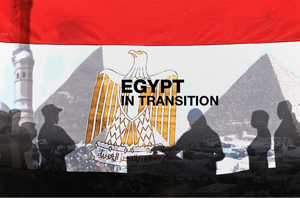Cairo protesters battle security forces
![]()
Fresh clashes in Tahrir Square after crackdown on demonstrations against military rule leaves at least 20 people dead
Protesters calling for Egypt’s military to hand over power have beaten back a new raid by security forces to evict them from Cairo’s Tahrir Square after more than 48 hours of violence in the heart of the Egyptian capital.
Security forces fired tear gas and attacked a makeshift field hospital on Monday morning, while protesters broke up pavements to hurl chunks of concrete at police.
Al Jazeera’s Mike Hanna reporting from Tahrir Square, said: “Throughout the morning plumes of tear gas are rising over houses. There are sporadic clashes happening around the outskirts of the square.”
At least 20 people have been killed and 1500 have been wounded in clashes between government forces and protesters in Cairo and other cities since Saturday in some of the worst violence since the overthrow of Hosni Mubarak, the former Egyptian president, Egypt’s health ministry reported.
Tahrir Square was the major rallying point for protesters in Cairo when an 18-day uprising toppled Mubarak from three decades of power in February.
Police backed by army officers fired tear gas canisters and charged demonstrators in the square as darkness
fell on Sunday, temporarily sending protesters fleeing.
They burned down banners and video footage posted on the internet, which could not be independently verified, showed police beating protesters with sticks, pulling them by the hair and, in one case, dumping what appeared to be a corpse on piles of rubbish.
Demonstrators swiftly regrouped in side streets and returned to take control of the square overnight before police tried again to retake Tahrir after dawn.
A makeshift field clinic was set up as injured protesters streamed in suffering from ammunition wounds from rubber-coated steel bullets, birdshots, and tear gas.
Late on Sunday night, a deal was reached between Imam Mazhir Shahin, the revolution’s preacher who led Friday’s prayers, and the police and army that protesters were allowed to remain in the centre of the square as long as they didn’t move to government buildings around the perimeter of the plaza.
Monday’s clashes, however, are also taking place near the interior ministry in Cairo and in major cities throughout Egypt including the major population of Alexandria and Suez.
Swift transition
With just a week before polls open in the first free parliamentary election in decades the clashes have raised concerns over whether the vote will go ahead smoothly, or whether it could be postponed.
Egyptians elect a new parliament in a staggered vote that starts on November 28, but even when the assembly is picked,
executive powers wouold remain with the army until a presidential poll, which may not happen until late 2012 or early 2013. Protesters want a much swifter transition.
The Supreme Council of the Armed Forces (SCAF), Egypt’s ruling council, repeated its commitment to its “roadmap” for transition and expressed “sorrow” over the situation.
“We are all insisting on having the election on time — the government, parties and the Supreme Council of the Armed
Forces,” Mohamed Hegazy, a cabinet spokesman, told Reuters news agency.
But yesterday a press conference to detail how the election process would proceed was postponed with no new date set.
Analysts say a surge in violence in voting, a common feature of elections in Mubarak’s era of rigged polls, could
undermine the assembly’s legitimacy if the result is questioned and deepen public frustration at the army’s handling of the transition.
 Follow our coverage of the historic vote
Follow our coverage of the historic vote
The police crackdown on protesters, elicited condemnation from parties across the political spectrum from Mohamed ElBaradei, a presidential hopeful and head of the National Association for Change, to the Muslim Brotherhood’s Freedom and Justice Party.
As a guess on a late-night talk show, ElBaradei said, “The prime responsibility for the situation of the country is the SCAF, who admitted they cannot run the country.”
Abdel Moneim Aboul Foutouh, a longtime Brotherhood member, who was also on the talk show also blamed SCAF’s ambiguous political position and called on the military council to publish a statement where they outline a clear plan for a power handover.
Related Articles
Mali: France pledges ‘short’ campaign against Islamists
![]()
The BBC’s Mark Doyle in Bamako: “There are thousands of these armed Islamists in the north” French Foreign Minister Laurent
UN suspends Syria observer mission
![]()
The UN military observers sent to Syria to monitor an April 12 ceasefire that never took hold have suspended their
Bashar al-Assad decreta una amnistía general
![]()
El presidente sirio, Bashar al-Assad, ha promulgado una amnistía para delitos cometidos antes de este martes, medida que excluye los


